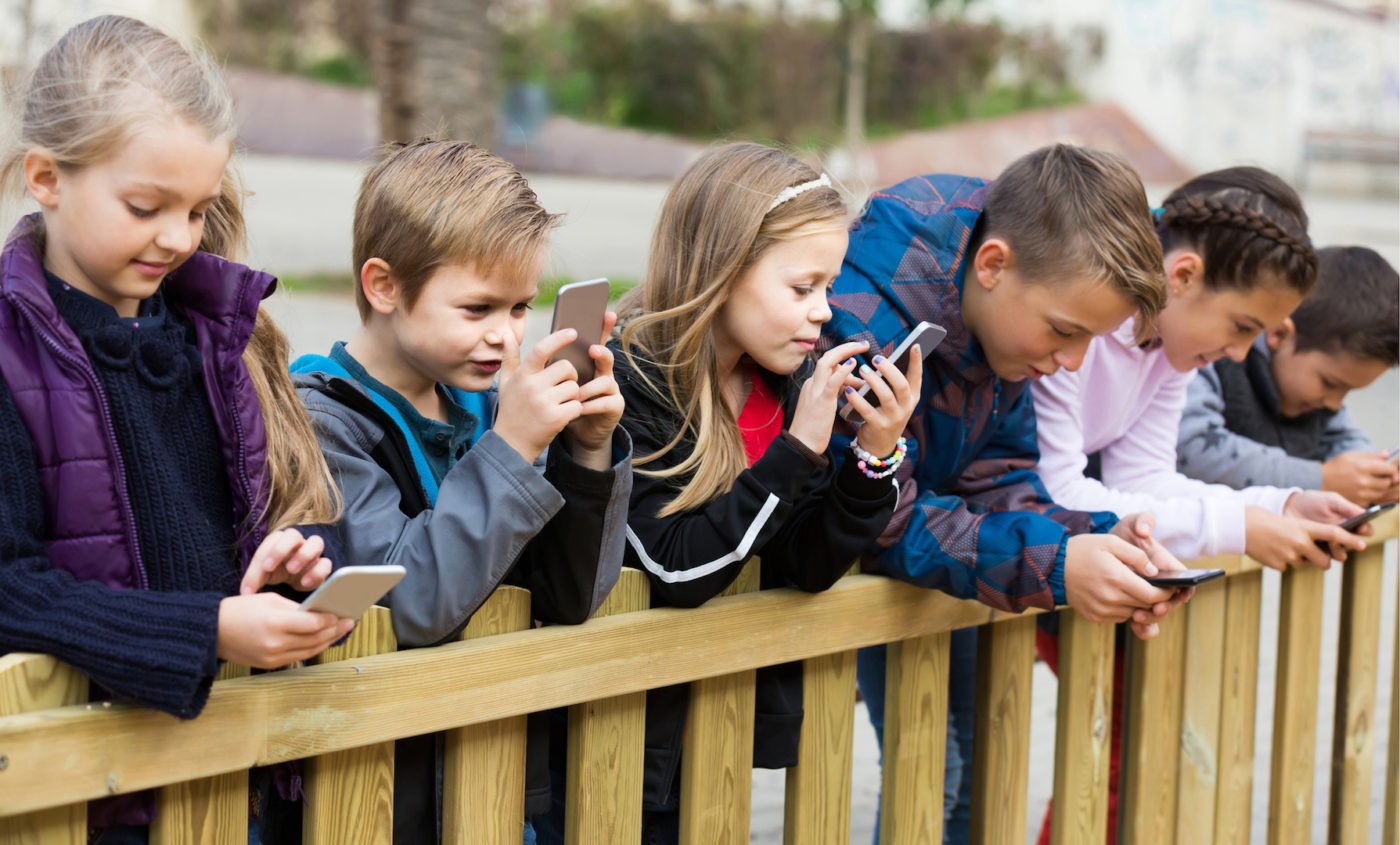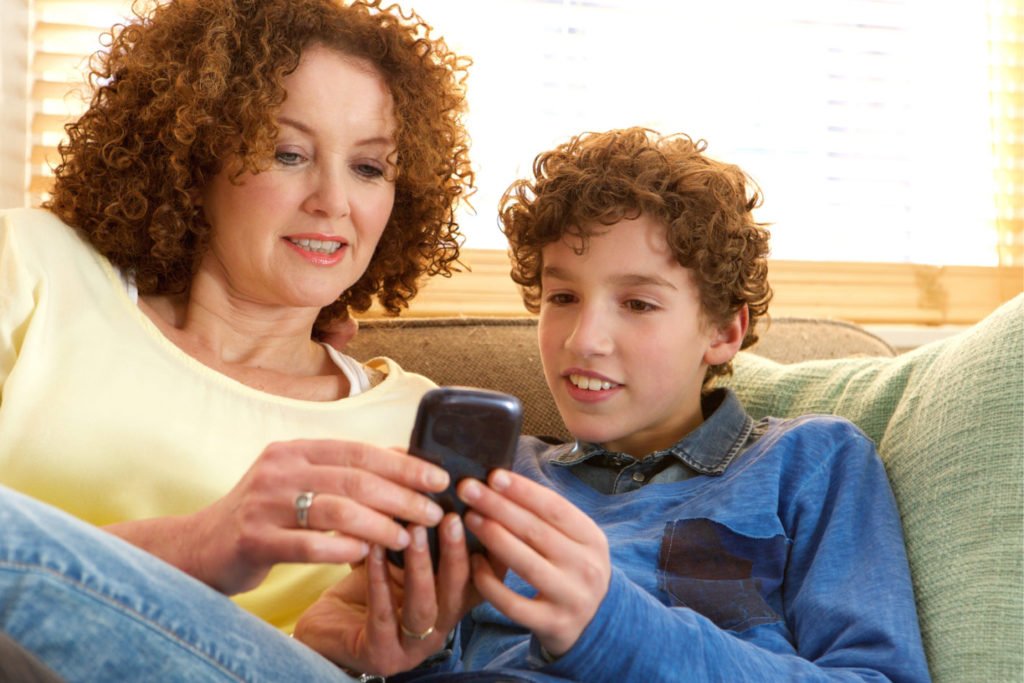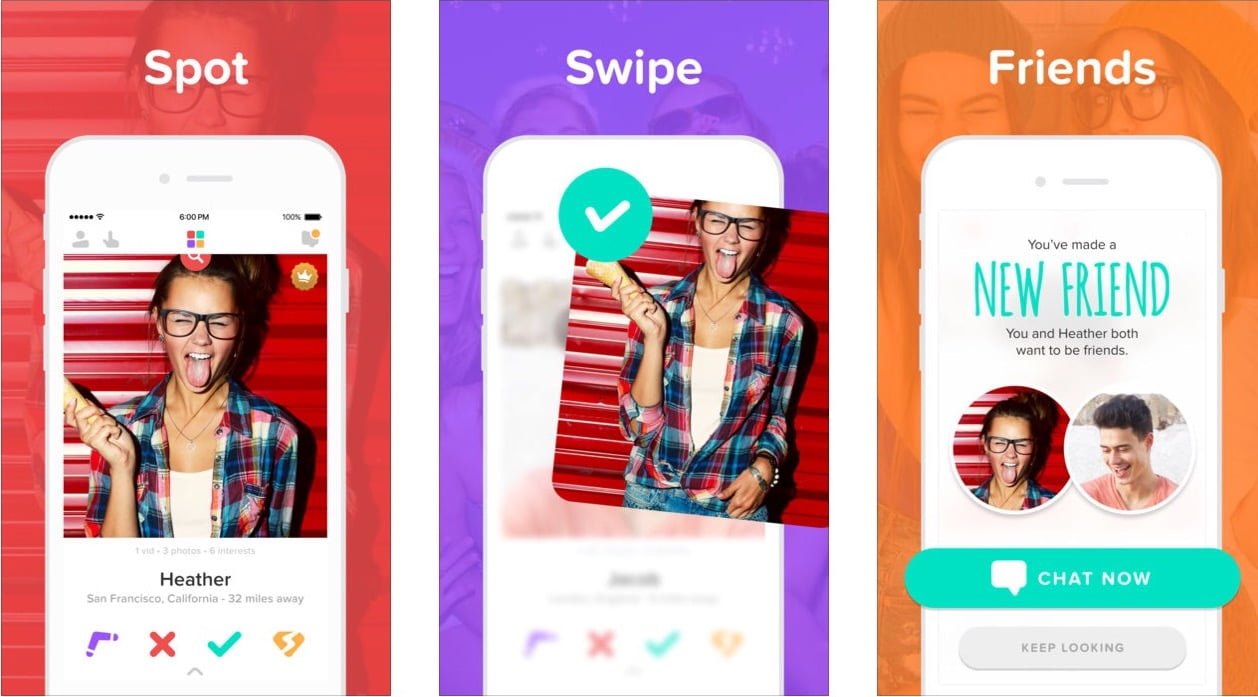“How old should my kids be before I let them use social media? It’s a question that can’t be answered with a number, but there are some good things to consider here.
Your child is desperate to be on social media. She’s been pleading for months and you know it’s true that most of her friends are on Snapchat. It’s getting to the point where you recognise that you might be socially isolating her by saying no. That said, she’s impulsive and when she’s with his friends she can be silly. Your head says, “She’s not ready’, but your heart remembers what it felt like to be excluded at school.
No matter whether you have a son or a daughter, what country you live in or how computer savvy you are, you will have this decision to make at some point. So what do you do?
The key is not so much looking at social media. We need to look at our kids; their social and emotional development, their moral judgment, their impulse control but most importantly, their relationship with us.
Relationship is central
Relationship underpins any advice about social media. If your relationship with your child isn’t good, and your boundaries aren’t clear, then tend to that and deal with social media afterward. Whatever problems exist in your relationship will be hugely magnified on social media.
Do you trust your child? Do they adhere to age-appropriate boundaries? Do they trust you? Will you be there for them, even if they tell you something you don’t want to hear? You need to be very clear about the answers to those questions before you take that trust online.
Communication
Having frank and reasonable conversations about social media with kids is essential and it needs to continue…for years. That doesn’t just mean adults laying down the law and kids listening.
Kids have to know that they can come to us no matter what, even if they have done something really stupid. Are you ready to hear things you don’t want to hear and not catastrophise? If we go off our face about an inappropriate image, will they tell us if someone is blackmailing or grooming them? That doesn’t mean that kids don’t need to recognise their responsibilities and accept boundaries.
Let’s be reasonable
Janine Parkinson is Head of Year 10 at Wesley College, so she spends her working life with 15-year old boys. She recommends a spirit of reasonableness, daring and exploration. “Parents should adopt an openness to play in the ‘social media space’ with their children, rather than see it as ‘the enemy’.
“We need to ascertain what children want from social media – emotionally and practically. Parents need to play in that space with them so they can begin to understand its use through their child’s lens. Do they want to create and collaborate? Are they simply looking for inclusion? More worryingly, are they looking for others to affirm their self-worth? The only way you can begin to unpack these questions is through open and honest conversations about what being on social media looks like for them.”
Some good exploration questions with kids might be:
- Can you show me around Snapchat? What’s most fun about it? What’s the worst bit? Show me how to set the privacy and location settings?
- Let’s have a look at some of your friends’ Instagram accounts. Who’s got the best one? Why? What do you like about it? What could you create with it? Who would you be in contact with?
- If you had a Snapchat/Instagram/Facebook account, what sort of boundaries would you think were reasonable? If something felt uncomfortable on social media, which adults would you be able to talk to about that?
I really like the idea of social media contracts. They give us a great opportunity for thorough and open conversation, not just about the technology, but about our family’s values and expectations. They also make kids aware of the very real responsibilities that come with being online.
The adolescent brain
The adolescent brain is a work in progress. It is not until their mid-twenties that kids develop an adult state brain, complete with a fully functioning pre-frontal cortex that enables them to practice sound judgment and reason. Until then, young people are operating largely from their amygdala. That’s the part of the brain committed to impulses, instinct, and emotion. It’s the part of the brain that doesn’t consider consequences and might think sending a nude is a good idea.
Is your child’s brain ready for social media?
- Could they step away from the keyboard and take five breaths before posting or commenting when they are angry or upset?
- Are they good at deciphering the intent of a message or image? Most kids haven’t yet developed the skills of reading tone, situations and people.
- Have they fully developed all the neural pathways that open up through interaction with the natural world? For example, can they assess risk well enough in the real world to transfer that skill to the online world?
- Will they go along with the crowd because they haven’t yet developed independence and integrity?
- Could they resist the pull of a lovely dopamine hit every time they hear the ‘’ding” of a notification on their phone? Could they voluntarily put down their technology and enjoy real life as it happens?
The answer to most of these questions for young teens is…”No”. Therefore, you need to be the voice of reason. That might mean no access to social media, or very close monitoring.
What about tweens?
Consider this…the vast majority of social media platforms set an age limit of 13 before you can create an account. If a child younger than 13 has an account, they lied about their birthdate in the sign-up process. Companies like Snapchat, Instagram and Facebook don’t think a tween is ready for their product…and they’re producing it!
If you wouldn’t let your child have free reign to watch whatever they like on television, don’t give them access to a medium like social media. It doesn’t come with a rating system and has minimal censorship. It can’t be assumed that your values are being encouraged. Yes, kids might be unhappy about it, but our job is to keep them safe, not happy.
Consider instead age-appropriate technology. Technology that lets you create films, music and art. Think about closed system games that help you imagine and think critically while having fun. At this stage in their development, programs that enable them to interact, instead of passively receiving information, are ideal.
Constantly interacting with others in real-world situations, teaches children about connection and relationships. By spending time with us and the people we value, they learn about communication, consequences and who they are. It is immediate feedback in the real world that should be shaping their character.
Finally…
Social media is not an enemy. However, it is worthy of serious consideration. We need to be sure we are being honest with ourselves, and our kids, about their capacity to use social media, rather than being used by it.
Visit Linda’s Facebook page here







